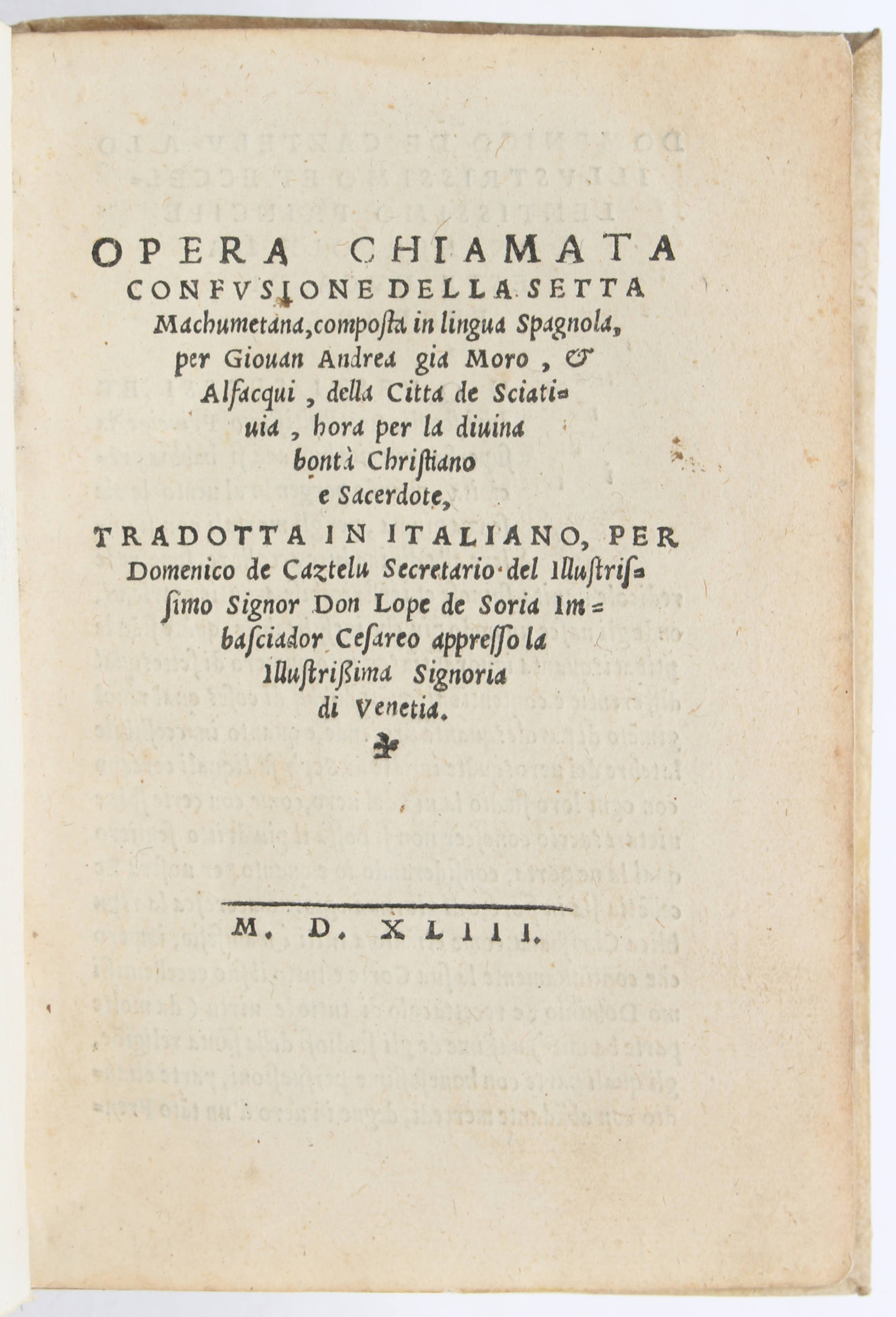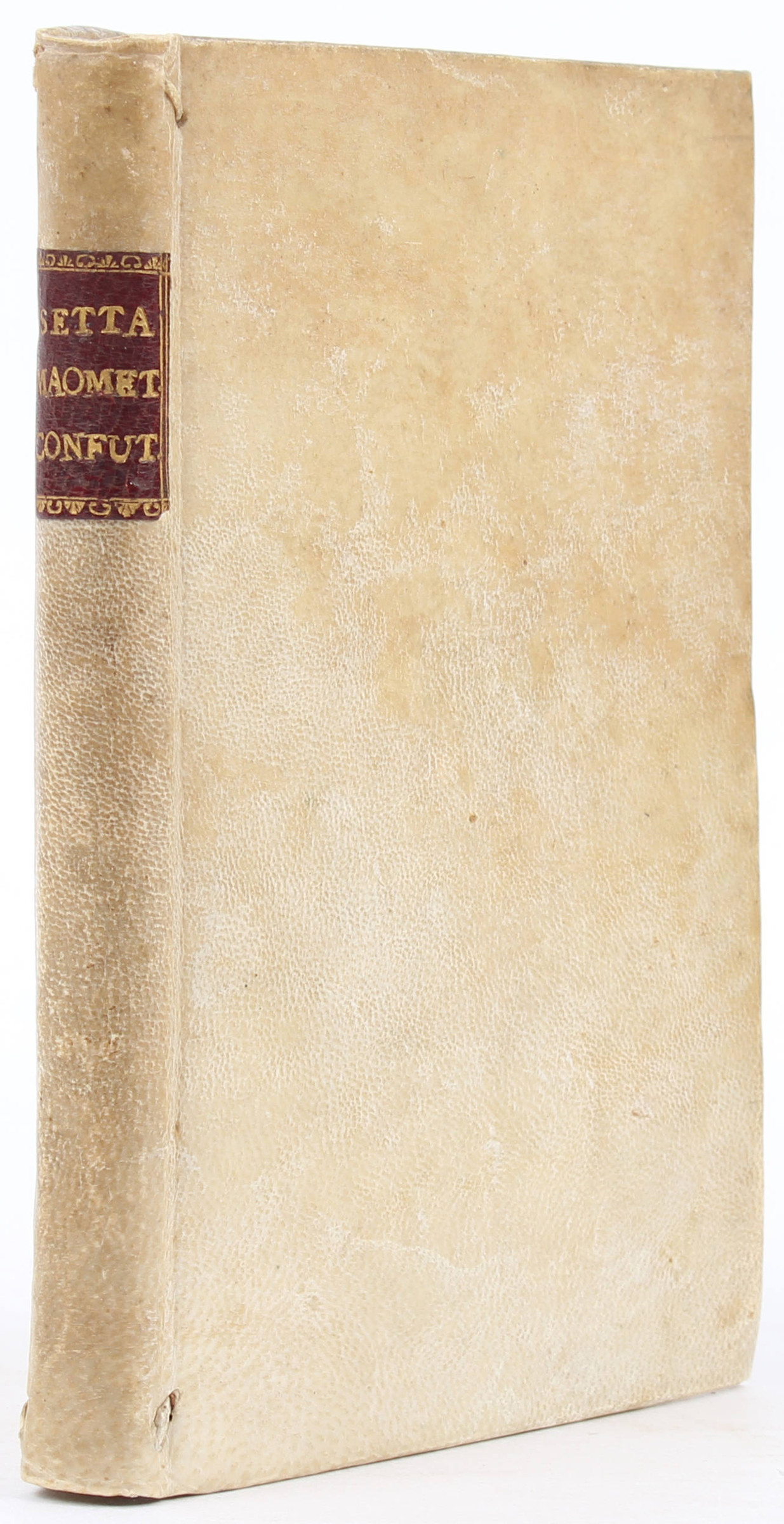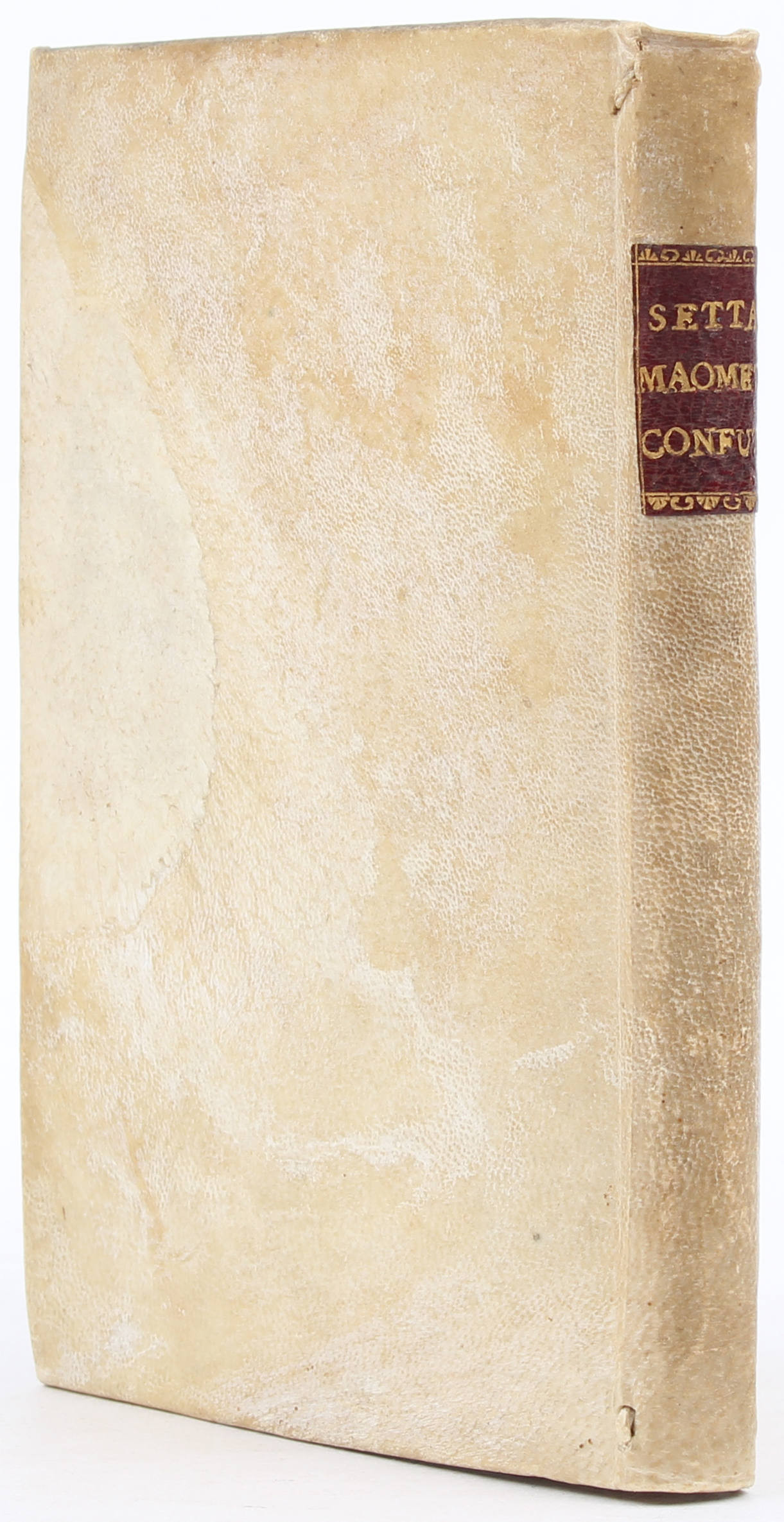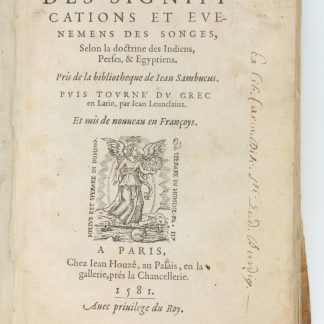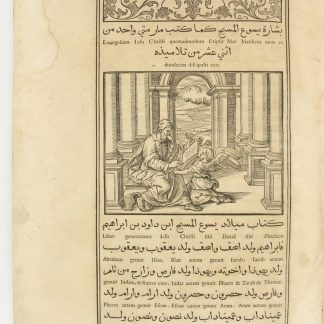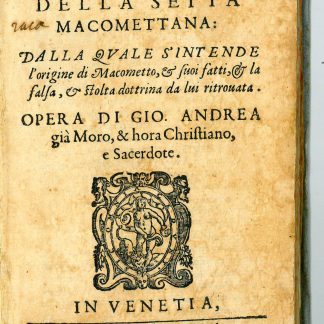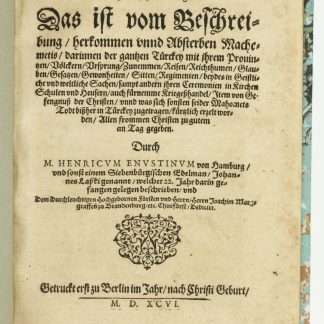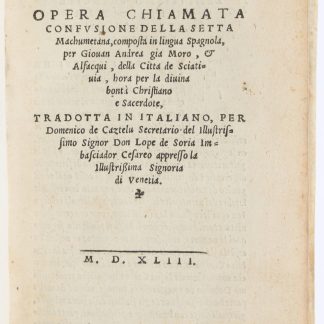Anti-Islamic sentiment in the European Renaissance
Opera chiamata confusione della setta Machumetana.
8vo (111 x 158 mm). 72 ff. 18th century vellum with red morocco spine label, titled in gilt on spine. Green silk divider. Marbled endpapers.
€ 4.500,00
A scarce polemic against Islam said to be authored by a converted Spanish Muslim, first published in Spanish in 1515 and immediately translated into Italian at the height of both the Spanish Reconquista and the Ottoman-Venetian Wars.
The Venetian edition (the publisher of this work has never been identified in any of the Italian editions) arrived just in time to meet audiences primed for anti-Muslim sentiment by a third loss in a row to the Ottomans, resulting in the loss of the last Venetian outposts in the Peloponnese. This was part of a series of defeats for Venice's rapidly shrinking Mediterranean empire, and was a growing geopolitical concern for the cities and states of Europe, who relied on Venetian dominance of the Eastern Mediterranean as a buffer against Ottoman expansion. Despite the Renaissance hunger for Muslim mathematics, astronomy, alchemy, and translations of the Greeks, this was also the era which saw the end of the 750-year caliphate of Al-Andalus, the rise of the Spanish Inquisition, and the crisis of faith and politics spurred on by the Protestant Reformation and the Catholic Counter-Reformation. Andres's book fit the needs of Europe's religious and geopolitical anxieties.
Göllner calls this work a "rude polemic" and describes how passages of the Qur'an are cherry-picked to produce the distorted image of Islam: "Eine derbe Polemik [...] Stellen aus dem Koran werden tendentiös ausgelegt und oft völlig entstellt wiedergegeben" (Göllner 73). Little is known of the author who penned it, supposedly one Alfaqui ibn Abdallah from Játiva near Valencia, who was said to have taken the Catholic name Juan Andres after conversion. He was a useful figurehead for the Spanish monarchs Ferdinand and Isabella, who assigned him as an envoy to preach Christianity in newly conquered Granada. Despite its anti-Muslim rhetoric, the work was in fact later banned by the Spanish Inquisition due to its extensive (albeit distorted) quotations from the Qur'an.
Faint dampstain affecting a few leaves; altogether very well preserved.
Edit 16, CNCE 1726. IA 105.562. Palau 12.174. Göllner 789. Chauvin XII, p. 21, no. 83.

